Tag: Songbirds
Chester Zoo’s Curator of Birds introduces the team
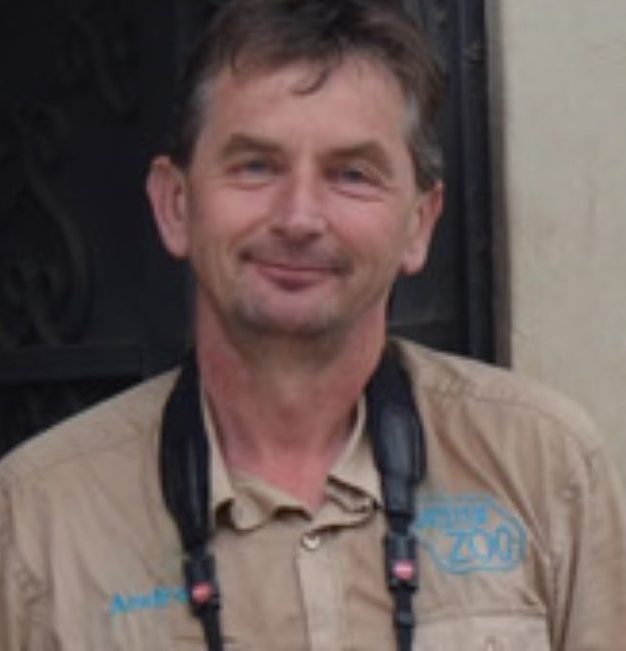
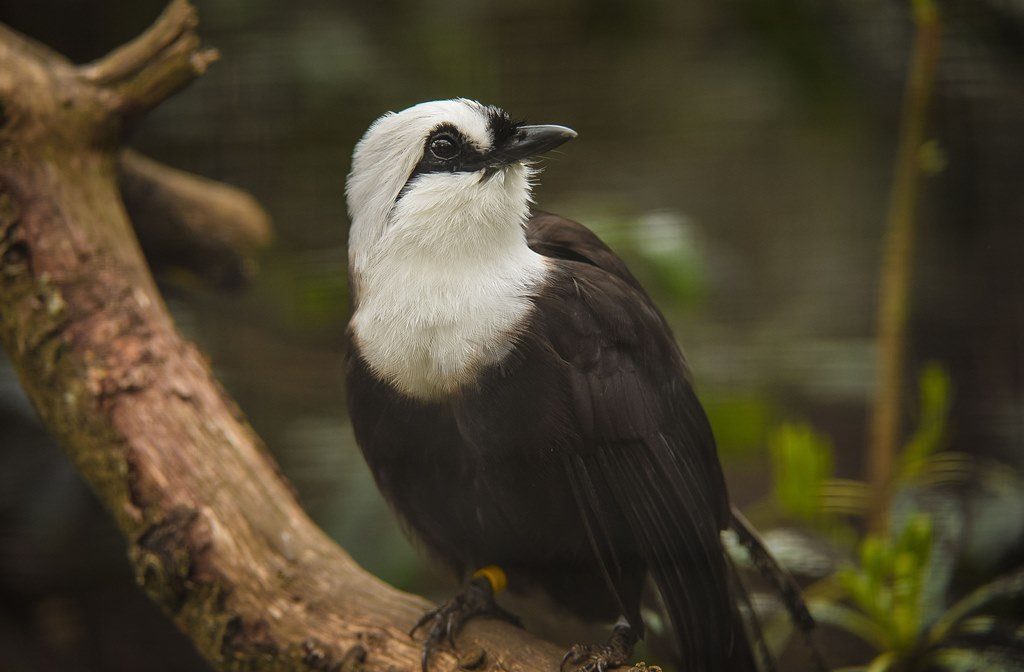
Time is fast running out for Indonesia’s most endangered songbirds. But a team from Chester Zoo led by bird intern Chris Coates will be running for their lives (the birds’ lives that is!) in the Chester Half Marathon.
Songbirds across South East Asia – and in particular in Indonesia – are rapidly disappearing from their forest homes. Trapped out to supply the unrelenting demand for the cage bird trade.
The forests are falling silent.
Birds such as the Javan Green Magpie, Black-winged Myna, Sumatran Laughingthrush and Rufous-fronted Laughingthrush are teetering on the brink of extinction.
Chester Zoo is working hard to help save these wonderful birds through managing conservation breeding programmes, providing technical and financial support to our partners in Indonesia, carrying out surveys, awareness and education and reintroduction of birds in to safe habitats.
This vital work can only be done with your support. The more money that can be raised, the more help we can give to the fight to save these fabulous birds from extinction.
Chris
I’m Chris and I am currently a One Year Intern within the Bird Department at Chester Zoo, helping to look after different species of songbirds.
This will be my first Half Marathon and something I have set myself the challenge of completing since taking up running a few years ago.
I will feel a great sense of pride to be able to raise funds to help save these amazing but critically endangered birds.
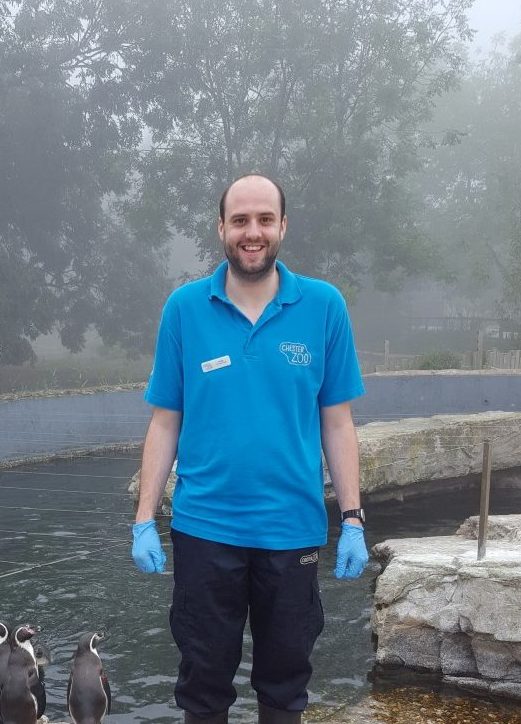
Sarah-Elizabeth
I’m big sis to Chris, I am running on behalf of Chester Zoo to help them raise funds and awareness for songbirds.
This will be my second half marathon, and even though I have run for 3 years and I’m also in a running club, half marathons will always be a challenge and I can’t wait to run for the zoo.

Suzanne
I’m retail operations manager at the zoo. In addition to the Chester Half, I recently walked the 3 Peaks challenge this year for Act for Wildlife.
I can run 5K so I will need to increase my distance to over 20K for my first half marathon. With such an important cause behind us, I know we will all be able to make it to the end!
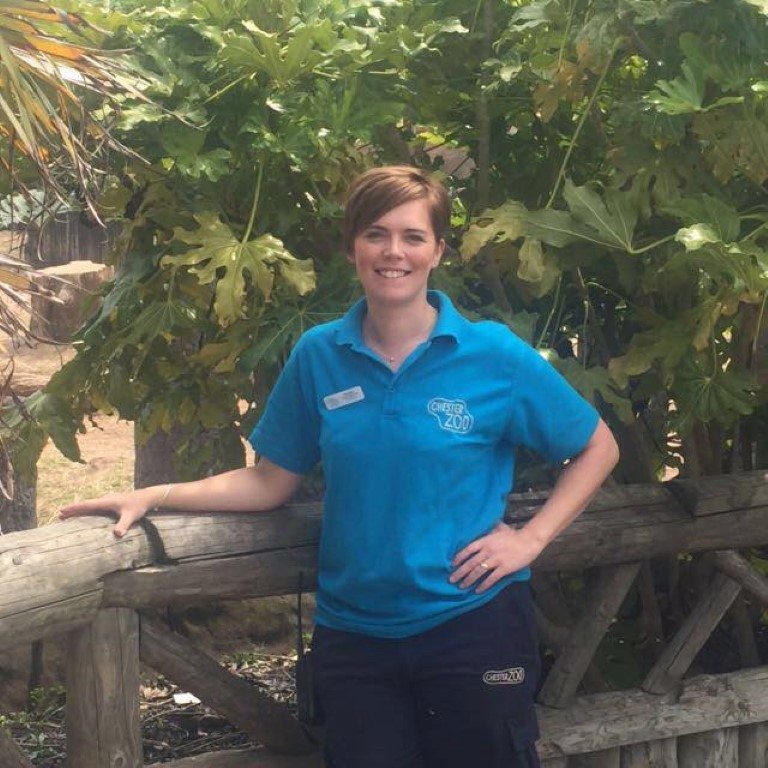
Abbie
I’m on placement as a bird intern at Chester Zoo. I work closely with Asian songbirds at the zoo and I’m currently involved in a research project to give us a better understanding of the behaviour and welfare of the Javan Green Magpie.
I’ve previously lived life as a couch potato and started running around 5 months ago and this will be my first half marathon.
Please give what you can!

Matt
I have worked with songbirds at Chester Zoo and at the conservation breeding centre in Cikananga, so this is a cause very close to my heart. I know how much of a difference any money made will make.
I have not run anywhere near this distance before but it’s a challenge I am really looking forward to.
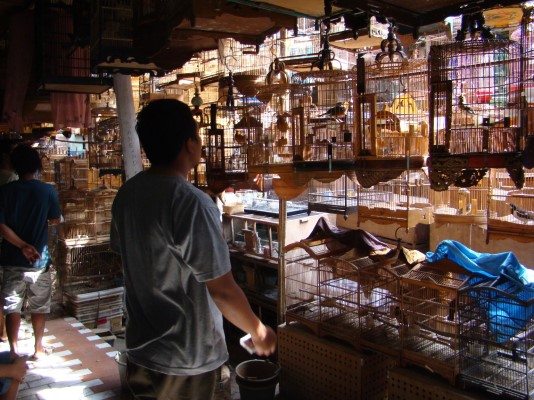
Jon
I’m Head of Guest Experience at Chester Zoo, and am looking forward to completing the Chester Half Marathon as a team to raise funds for this important cause.
I last ran The Great North Run in 2003… and haven’t done any running since then so it will definitely be a challenge!
Please give what you can to support.
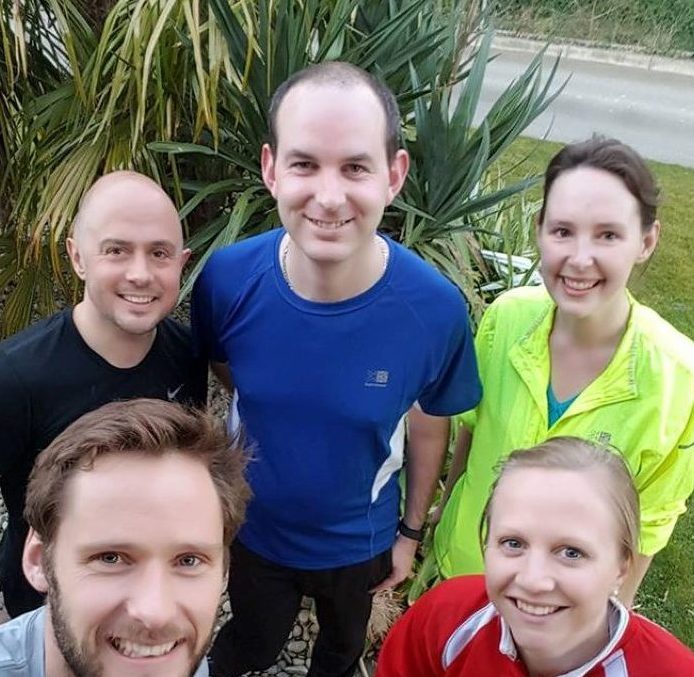
Olly
I run the Catering department at Chester Zoo – ensuring all our visitors and staff are fed and watered.
One of the unique parts of working at the Zoo is knowing that all your hard work is contributing to good causes and being able to get involved directly in fund raising initiatives such as the 2 challenges I am undertaking this year: the 3 Peaks challenge for Painted dogs and the Chester Half Marathon to save Indonesian Songbirds.
The aim is to raise awareness of both causes and hopefully get a little fitter along the journey!
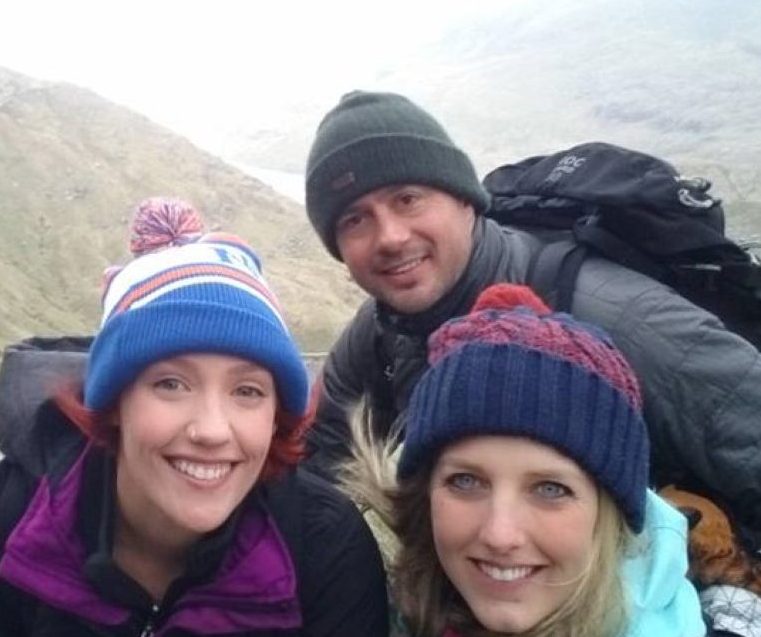
Ian
I’m Commercial Analyst at Chester Zoo, so deal with anything to do with data and getting information to people. It’s an incredible place to work and I love knowing it’s all for a good cause.
Since joining the zoo 2 years ago, my eyes have been opened to the amazing conservation work that takes place here. This has encouraged me to away from my desk and help support these great causes with Born Survivor and now the Chester Half Marathon. Hopefully there’ll be many more challenges to come…if I get through this one alive!

Hannah Brooks, Chester Zoo’s Community Engagement Manager tells us more about how and why the school got involved:
“I visited the school back in January to tell the teachers all about the songbird crisis out in South East Asia which I witnessed first-hand during my visit to our field partner in Indonesia. I could tell that the teachers were shocked about the scale of the problem as they previously knew nothing about it and when we explained that their school could get involved and do something about it they were 100% on board.
“The school decided to transform their curriculum and developed songbird lessons that related to every subject to be delivered over six weeks.” – Hannah Brooks
“They also wanted to spread the message further and ran a campaigning afternoon where they visited other local schools and Cheshire Oaks to allow their students to share what they had learnt.
It’s amazing to see the students talking about songbirds and the threats they face, you can really tell that they’ve got a deep understanding of it and that they care passionately about taking action.”
And it doesn’t stop there, St Bernard’s want to inspire other schools and people in the community to get involved in the campaign and are hosting an exhibition of their work. There are loads of ways you can join in with our Sing for Songbirds campaign – whether you’re from a school or not.
The Asian Songbird Crisis Summit brings together bird experts from all over – from zoo curators and keepers, leaders in bird taxonomy and conservation, experts in field ornithology, tropical bird ecology, avian genetics and wildlife trade. All are there for one reason: to help find ways to protect and conserve South East Asia’s songbirds. Our Curator of Birds, Andrew Owen, tells us his story…
The below video highlights some of the activities our discovery and learning team are doing in the field, as well as the work we’re doing with schools right here in the UK to help raise awareness of the songbird crisis and how we can all help make a difference.
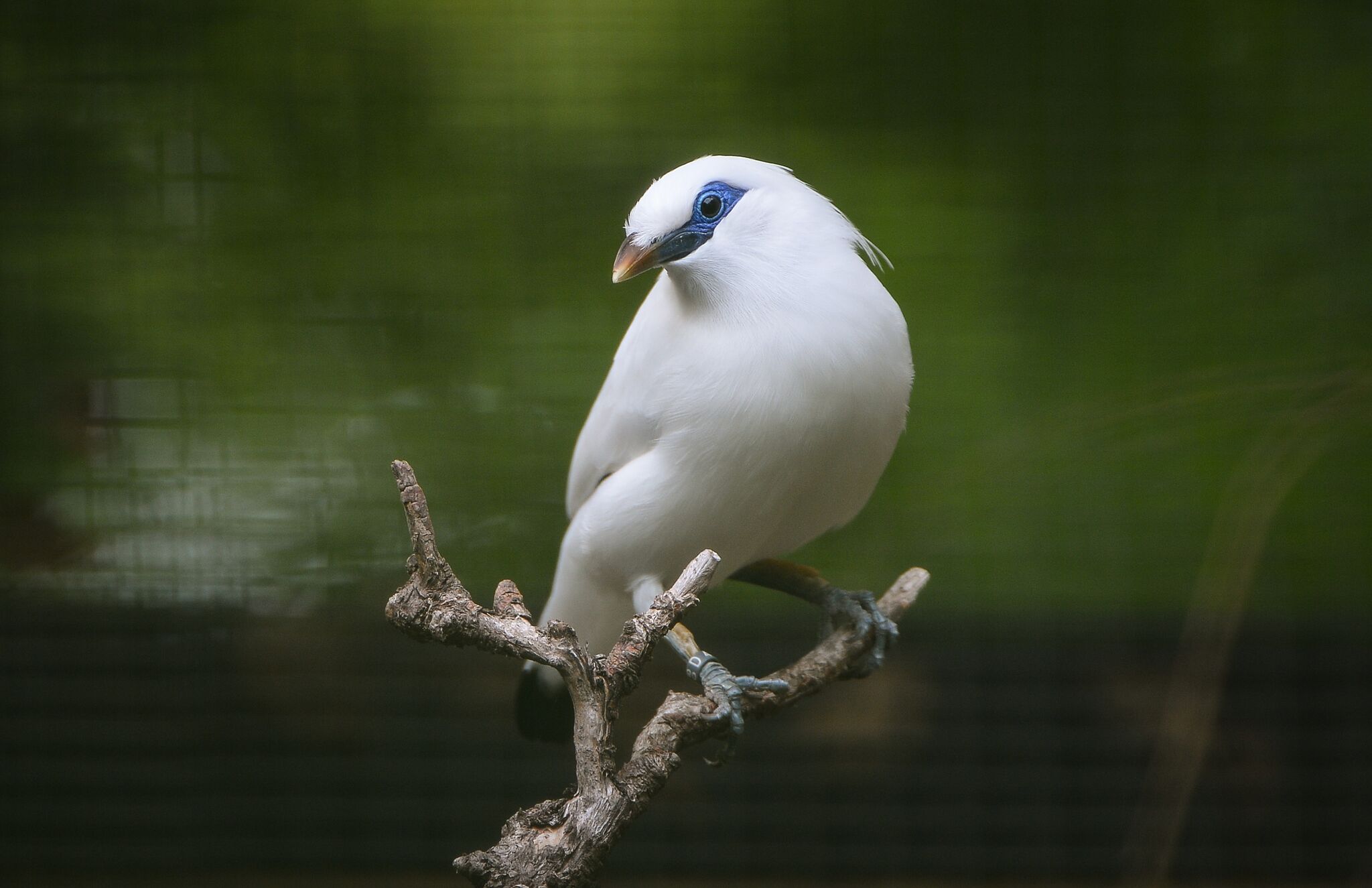
Donate to Indonesian Songbirds
Donate to our songbird project and 100% of your money will be used to help save songbirds in the wild.
Rose Gelder is part of the team that raises money to help fund our conservation work around the world. In 2016 she organised three Pokémon Go events at the zoo with the proceeds going towards our projects. The first event alone raised £17,500 and the money went towards our emergency appeal to rebuild an aviary block in Cikananga Conservation Breeding Centre (CCBC).
She recently visited our songbird project in Indonesia to meet the team and see how these vital funds are making an impact on the project…
“We’ve been working with Cikananga Conservation Breeding Centre in West Java for over six years. The centre is run by a small dedicated team who are experts in breeding several species of endangered birds, including Javan green magpie and black-winged starling.
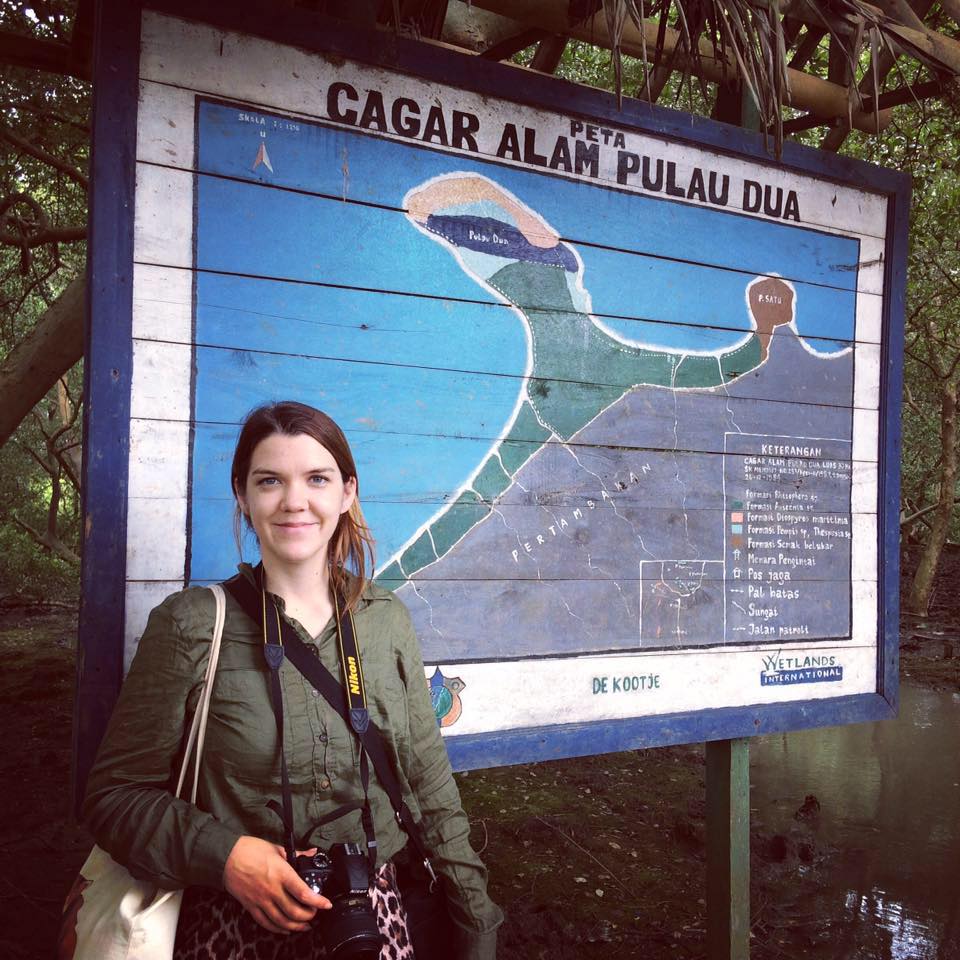
Horrific experience
“We spent the first day in Indonesia in the capital Jakarta visiting the largest bird market in the city, Pramuka. This was a horrific experience. We saw so many familiar species living in disgusting conditions, including the Java sparrow, Asian fairy-bluebirds and the critically endangered Bali starling, all being kept in a small cage ready to be sold.
“We were confronted with the scale of the problem, as we travelled to Cikananga. Almost every house we passed on the drive had at least one small cage hanging outside, the sound of birdsong audible every time we stopped. We soon realised that you can hear birds singing beautifully in every village that we passed, but the forests we travelled through were all silent.
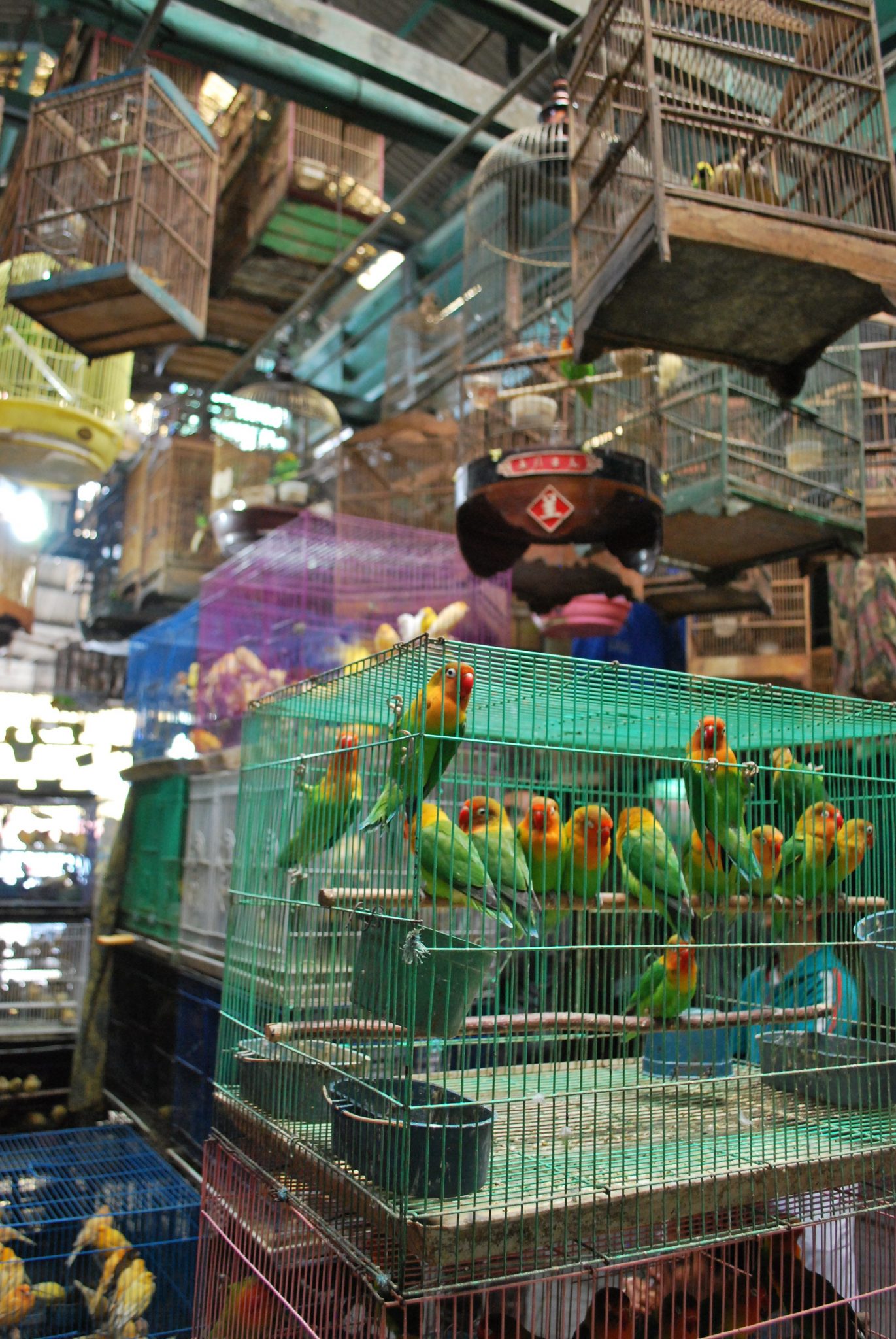
We are well on our way to providing every single bird at Cikananga with this wonderful, state of the art enclosure.
“Visiting CCBC was the perfect antidote to the visit to the markets. Faced with the realisation of how widespread the culture of keeping birds in cages was in Indonesia, it was lovely to meet the team who were doing everything they could to make sure the most critically endangered bird species don’t become extinct in the wild.
“CCBC is based in the middle of the rainforest, next to the village Cikananga. Surrounded by paddy fields and a few small villages, the forest is lush and dense. The aviaries are located behind a big steel fence, protected by two big guard dogs. The birds kept here are so valuable that CCBC has been the victim of repeated thefts, with people stealing the birds to sell for large sums of money. They no longer take any risks with their security.
The money we raised last year on our Pokemon event will be spent on a new aviary, the second out of four that drastically need rebuilding.
Old vs new
“When we arrived at the centre we went to see their first new aviary block which had just been completed. The old wooden aviaries are rotten from the humidity and termite infestation, but the new building has been made of concrete and metal mesh with deep concrete foundations, meaning rats can’t access the enclosures and attack the birds.
“They are all around safer, cleaner and a much more beneficial environment for the birds to live in. With one out of four aviaries replaced, and a second fully paid for, we are well on our way to providing every single bird at Cikananga with this wonderful, state of the art enclosure. This will boost the breeding activities of these birds, so when reintroduction programmes are started there will be a healthy number of pairs to release into the wild, giving a greater chance of the species thriving in their new habitat.
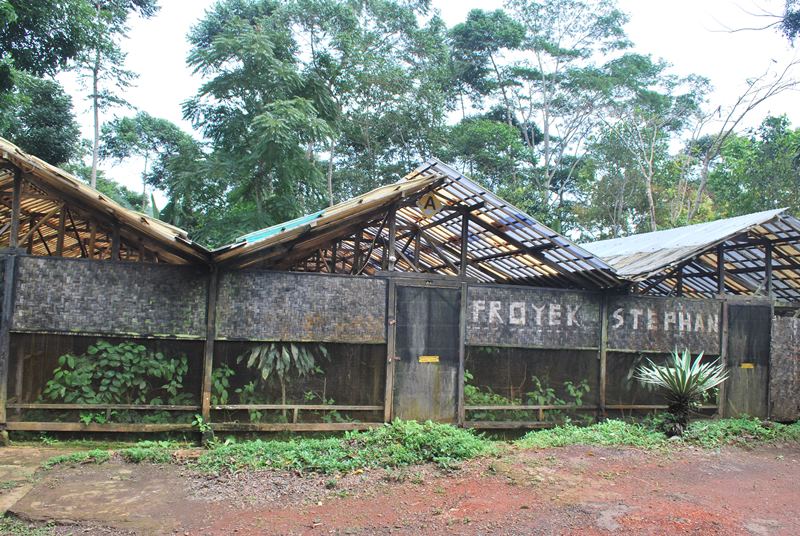
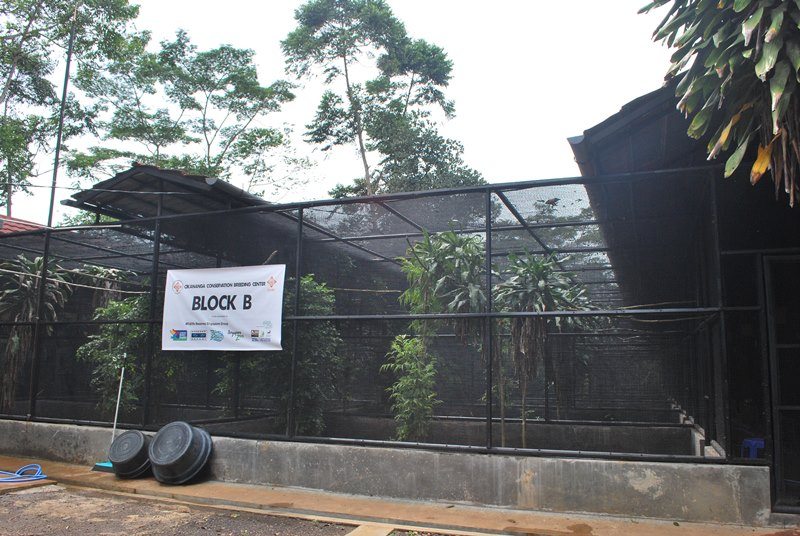
“Hopefully our efforts won’t be too late to save these beautiful birds from extinction. With prices on their heads so high, it’s critical that we act now to protect these species remaining in the wild. There are concerns that as the Javan green magpie is no longer showing up on markets, it may well be extinct in the wild. We don’t want the other birds to suffer the same fate.
“Sitting at my desk in Chester, it’s hard to get a grasp of how desperate the situation for the songbirds is. Coming face to face with the issues, I’ve gained a much clearer understanding of how the illegal trade of these species is decimating these populations, and if we don’t act soon these birds will no longer be found in the wild, future generations won’t be able to enjoy their beautiful songs.
We urgently need to act – we can all make a difference to these wonderful birds.

Donate to Indonesian Songbirds
Donate to our songbird project and 100% of your money will be used to help save songbirds in the wild.
Following on from the news we shared earlier this month about four Javan green magpies hatching at the zoo for the first time, we’re really pleased to share some more songbird news with you…
Our keepers caught the Sumatran laughingthrush chick’s first flight on a special nest camera after their attempts to breed the rare species proved successful. This is great news for the species as – like the Javan green magpie – it’s facing a high risk of extinction in the wild.
These birds with their beautiful song are in rapid decline. The main threat to the species is the illegal trade and trapping for the caged bird trade which is a big problem across Indonesia.
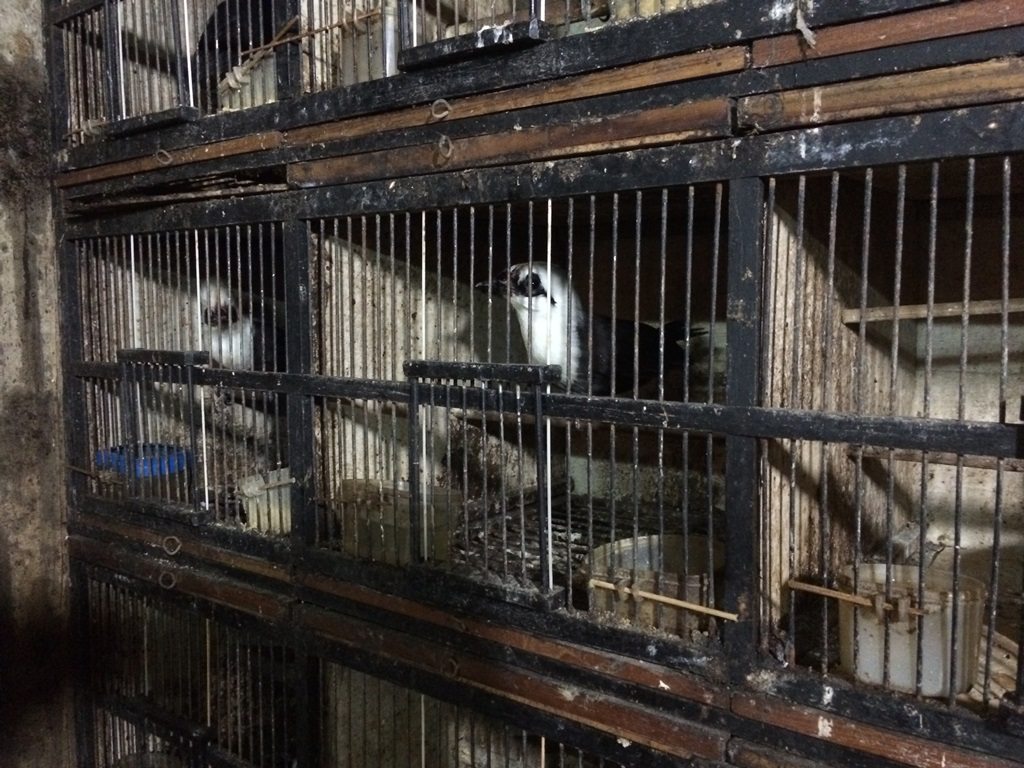
Andrew Owen, Chester Zoo’s curator of birds, tells us more:
In the wild the Sumatran laughingthrush is disappearing at an alarming rate as it has become victim to a shrinking habitat and the unrelenting demand for the caged bird trade.
“Caged birds, the vast majority of which have been harvested from the wild, can be seen just about everywhere in Indonesia – hanging outside houses, shops, restaurants, petrol stations, you name it. Most of them are kept in terrible conditions and are seen as something beautiful to admire for a couple of days until they wither away and die. As the species becomes rarer and rarer its value increases, which is beginning to push it to the edge of extinction. The sad reality is that while market places are full of the sounds of caged birds, the forests are almost silent.
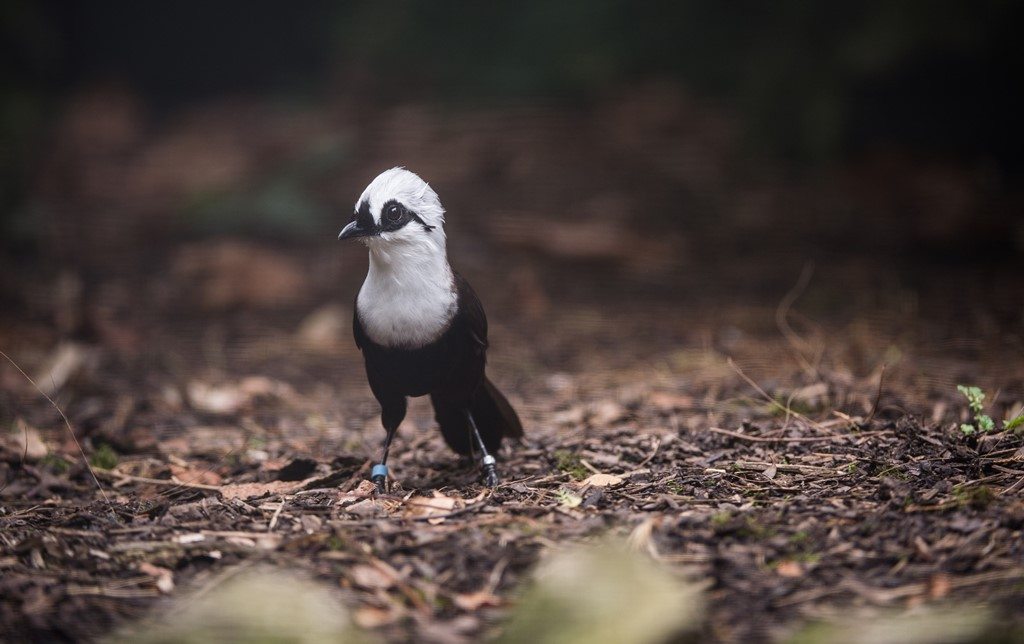
“The Sumatran laughingthrush is very, very rare and to see the chick take flight for the first time on camera is incredibly special. I’ve been working with the species for 12 years and haven’t been lucky enough to witness one of these birds fledge and leave the nest before – it’s really charming footage.
Our new chick and the four other chicks we have reared this year are ever so important to the conservation breeding programme for the species, which is working to ensure a protected population for the future.
We’re also working closely with our partners at the Cikananga Conservation Breeding Centre in Java, where we’ve set up a specialist breeding centre to boost population numbers and help rescue birds from local markets. The long-term aim is to release birds into safe wild areas.
Chester Zoo is also part of a conservation breeding programme which is striving to create further safety-net populations of the species in Europe. There are currently only 70 Sumatran laughingthrushes in the European breeding programme.
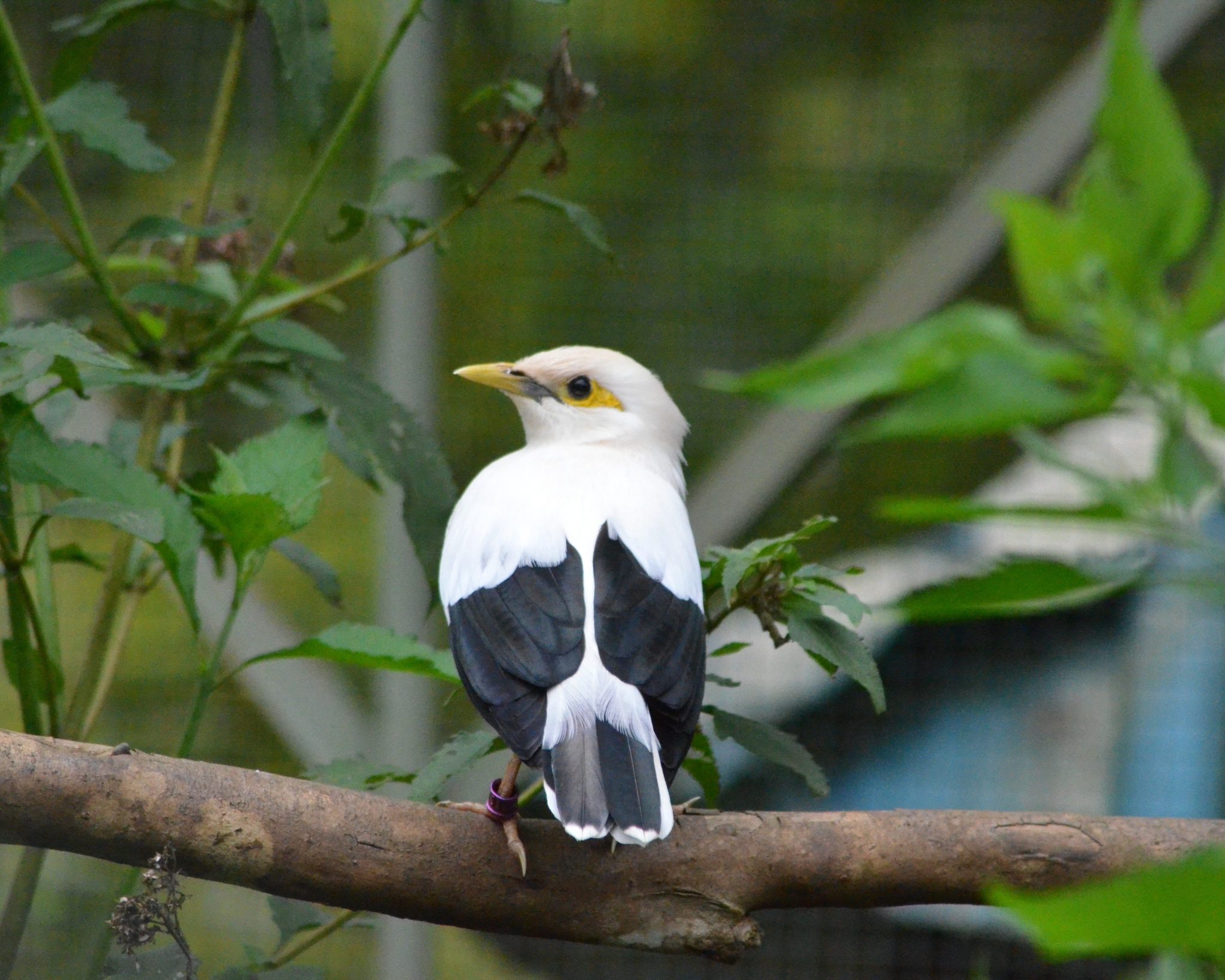
Donate to our songbird project and 100% of your money will be used to help save songbirds in the wild.
We’re working tirelessly at the zoo and with our partners in the field to do all we can to try and save the species before it disappears forever. We started the first ever European conservation breeding programme for the Javan green magpie in December last year.
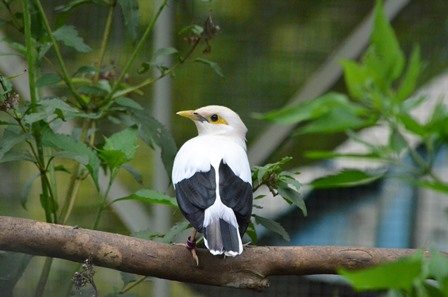
We are working with our partners, Cikananga Conservation Breeding Centre, in Java on a vital conservation breeding programme; managing insurance populations of some of the world’s most threatened birds with the long-term aim to then release them into safe wild areas to increase population numbers.
In order to continue this vital work we urgently need to build new aviaries to replace the old ones which are in danger of collapsing due to the destructive humidity.
Johanna Rode-Margono, South East Asia programme coordinator at Chester Zoo, tells us more:
“Every year the rainy season and termites take their toll on the wooden-framed aviaries at the breeding centre. We are at a point where the decay of the old aviaries actually risks the security and life of the birds, and we urgently need to start building new durable facilities. As these birds breed in pairs and are quite competitive, they do need a well-laid out plan of single aviaries that enable successful breeding.”
Make a donation
You can help by texting ‘BIRD44 £10‘ to 70070 to donate £10 towards our urgent aviary appeal. Alternatively, you can make an online donation here. Thank you for your support!
(*Our Text to Donate service is delivered through Just Giving. For full Terms of Service please visit Just Giving)
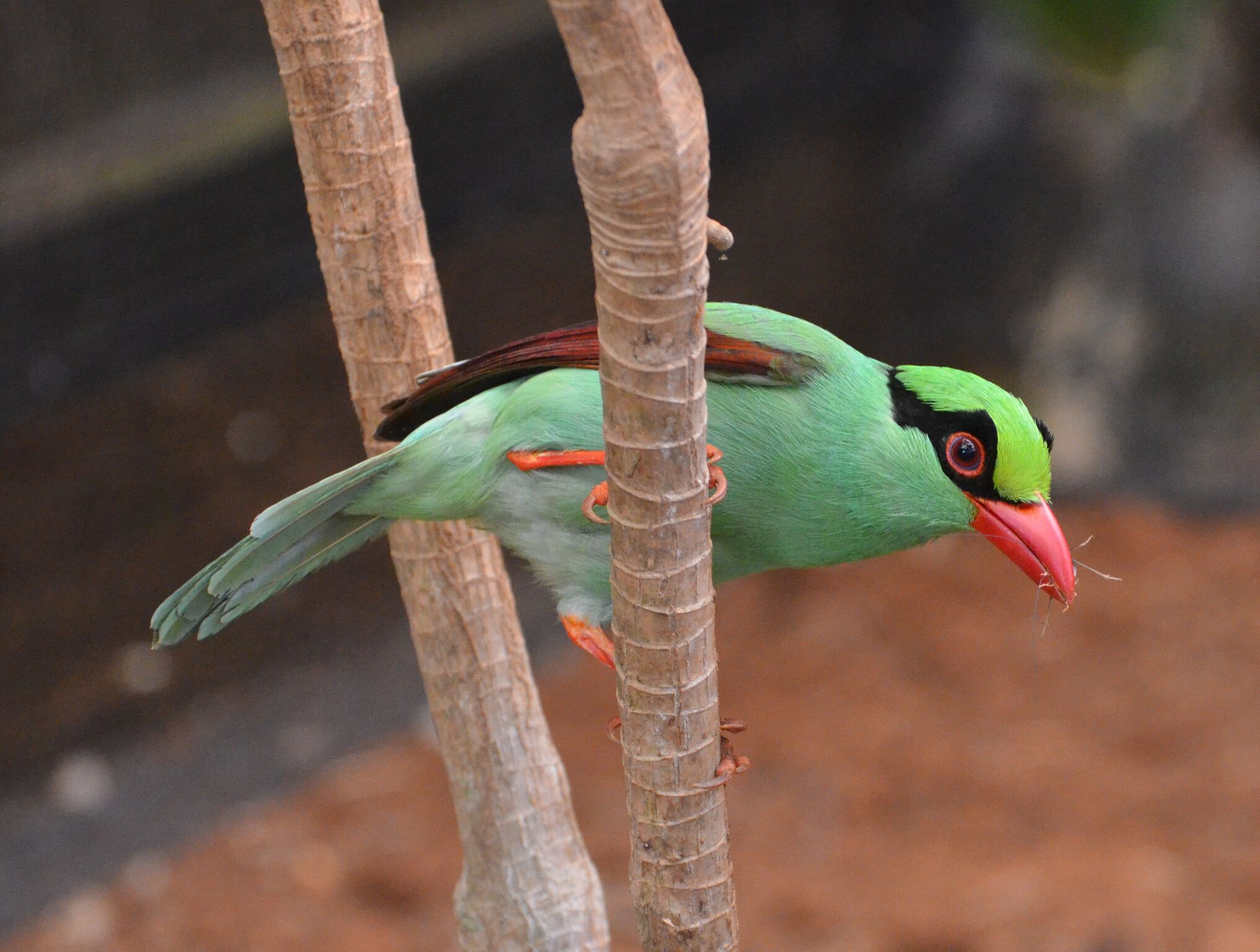
Why are these birds disappearing?
South East Asia is currently facing a massive songbird crisis as a result of the illegal wildlife trade – birds are being captured and trapped to be used either in singing competitions or kept in cages as a status symbol, displaying the owner’s wealth. So on top of the breeding programme, we are also working with our colleagues to identify potential secure release sites for some of the birds we’ve been working so hard to breed.

Donate to our songbird project and 100% of your money will be used to help save songbirds in the wild.
Since starting at the zoo back in January, Johanna has been exceptionally busy! She looks after and develops all of the projects we work on across South East Asia.
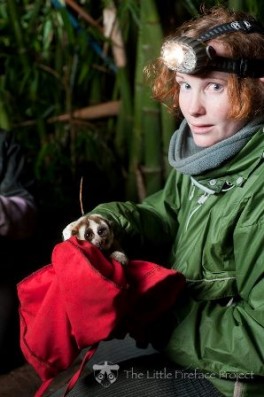
Johanna has recently returned from a trip to Java where she visited our field partners at the Cikananga Conservation Breeding Centre (CCBC), alongside Chester Zoo curator of birds, Andrew Owen, head of field programmes, Scott Wilson, and Javier Lopez, veterinary manager.
Together with CCBC we are working hard to save critically endangered bird species, such as the black winged starling and Javan green magpie, from disappearing from the face of the Earth.
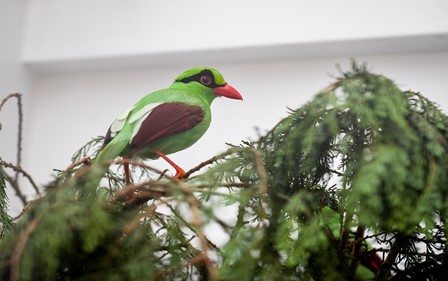
We are doing this through conservation breeding programmes, whereby they are managing a population in the breeding centre as an insurance population for the wild. Animals from this population may then to be released into the wild to increase population numbers.
Unfortunately, it is hard to find a secure and suitable release site for the birds due to the illegal wildlife trade. South East Asia, and especially Indonesia, is currently facing a massive songbird crisis where birds are captured and trapped to be used either in singing competitions or kept in cages as a status symbol, displaying the owner’s wealth.
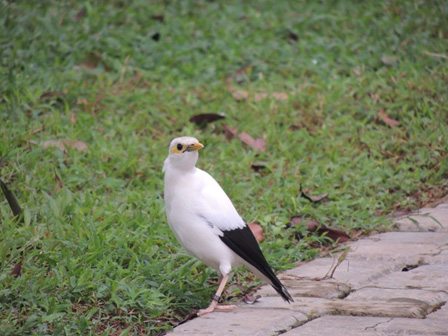
As a result of these deeply-rooted traditions, the forests of South East Asia are falling silent and the birds that CCBC hope to release would be at risk of disappearing into one of the notorious birds markets on the island.
During the trip the Chester Zoo team visited the biggest of these bird markets in the capital of Indonesia – Jakarta – where protected wild caught species can often be found and are traded illegally.
A large part of Johanna’s time on the trip was spent helping CCBC field staff explore and identify potential secure release sites for the black winged starlings that the centre have been working so hard to breed. Several sites were identified as being suitable, probably providing all of the ecological parameters necessary for the birds to establish healthy populations. The next step will be to decide which of the identified sites will provide enough security and allow for close and daily monitoring of the birds.
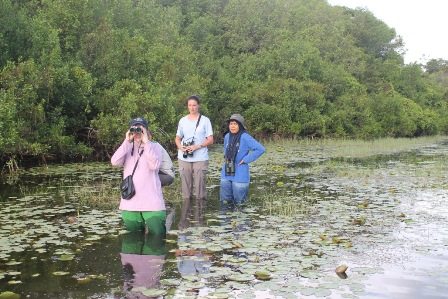
Andrew and Javier continued their technical support to the centre by providing expert advice on husbandry and veterinary practices. Andrew looked over the breeding practices and advised on the construction plans of new aviaries that would replace the old ones that are in danger of collapsing due to the destructive humidity. Javier trained the new vet and some of the field staff at the centre in veterinary practices such as microchipping.
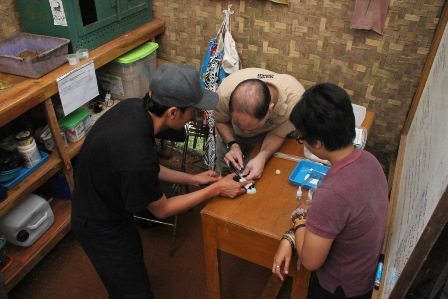
Watch this space for more updates from Johanna and work we’re doing in South East Asia. In the meantime, catch up on the work we’ve been doing with the Cikananga Conservation Breeding Centre in Java, here.
If you’d like to connect with Johanna take a look at her biography page on the Chester Zoo website here.
The centre works tirelessly to breed critically endangered birds to be reintroduced back into the wild at safe habitat sites.
Matt took some time out of his busy schedule to answer some questions for us.

How did you come to be at the CCBC?
“After my internship at Chester Zoo I was offered the chance to stay at the zoo as a bird keeper on a short contract. The contract was coming to a close and Andrew Owen, curator of birds, offered me the chance to come to Indonesia to work at CCBC. Obviously the chance to gain more experience working with critically endangered birds in Indonesia was an opportunity too good to turn down.
Could you give us with an insight into what a typical day for you is like at CCBC?
“The day usually starts at 7am, unless there are young chicks then 6.30am – the young chicks need to have food available as early as possible. From 7am the birds that I am taking care of that day are fed and given fresh water to drink and have their water baths cleaned and refilled.
“Then I usually prepare crickets and the prey food for the Javan green magpies. We have been breeding crickets as a food source for the birds, so I will also feed these too. If there is time left in the morning then we will do any jobs that need to be done such as cage maintenance, collecting nesting material, building nests, etc.
“The afternoon starts with feeding the Javan green magpies with a mouse or a lizard with the rest of the afternoon usually being for big jobs where the other bird keepers, Ajle and Asep, and I are needed.
What have been your highlights so far?
“Working with the Javan green magpie has been a big highlight for me as they are my favourites here at the centre. I have been doing a small project on how they get the green colour in their feathers and so I have been learning a lot about them.

Javan green magpie. Credit: Matt Speed
What challenges have you had to face whilst being there?
“I have definitely become better at fixing things! At Chester if there is a big job we would usually hand it over to the maintenance department. Here however we do all of the maintenance ourselves. Working with people who don’t speak English can be challenging at times; trying to make ourselves understood to one another can sometimes be hard so I’ve had to learn some Indonesian words that help. We are beginning to focus on getting the Rufous-fronted laughingthrushes, another endangered species, to breed so that will be the biggest challenge from now until I leave.
How has Chester Zoo’s involvement helped the project?
“The financial support helps to feed the birds and has also meant that a fence could be built around the centre to protect the birds from being stolen. Constant contact with Andrew and Javier (veterinary manager at Chester Zoo) has meant that we receive advice and support if, for instance, we have a sick bird about what the best course of action is to take.

Matt receiving husbandry advice and demonstrations from Javier
Other than breeding and reintroduction, are there any other activities happening to conserve these birds?
“There are projects that exist to raise awareness and educate local people about the decline of songbirds. At the release site where Cikananga releases the black winged starling, there is a field team who, apart from monitoring the birds after they are released, talk to local people and schools. They help the local people to understand the importance of protecting the local songbirds and why catching the birds and keeping them in small cages is bad for the birds and bad for the species.”
I am Matt Speed and I Act for Wildlife